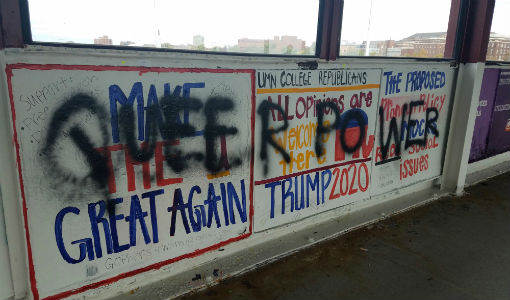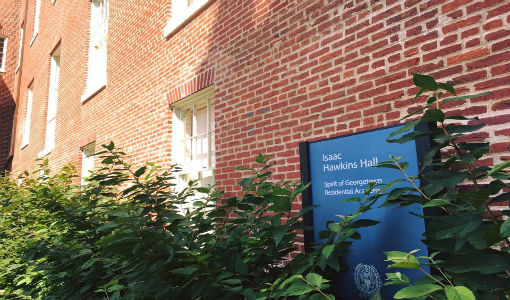Overview
Some recent on-campus First Amendment controversies have arisen from legitimate concerns that protecting free speech sometimes requires protecting racist, sexist, or other discriminatory speech. Failing to address these uncomfortable truths head-on can both hinder free speech and create the impression that it is incompatible with inclusion and equity. Instead, colleges and universities should make clear that free speech underpins their embrace of diversity in all its facets by airing voices from all backgrounds, identities, and perspectives and upholding robust protections for academic freedom.
See resources by role:
The Law
Under federal law, all students have a right to an equal learning environment on campus free from discrimination and harassment. When speech crosses the line into discrimination or harassment, it is no longer protected, and universities have both a right and an obligation to hold people accountable for it. While this can raise tensions and challenges with the legal imperative to protect free speech, the ideal of free expression should never be used as an excuse to justify harassment. At the same time, policies concerning verbal discrimination and harassment cannot be so overbroad as to restrict or chill speech. Colleges and universities should also remember that speech can be a forceful corrective to inequality and injustice, and constraining hateful expression risks constraining our tools to combat it.
See Federal Statutes in the Law Section
Our Principles
- Campuses must be open to a broad range of ideas and perspectives, and to achieve that, they must uphold the rights of all students to participate freely and equally.
- Campuses can and must fulfill their dual obligation to both protect free speech and advance diversity and inclusion.
- Campus leaders must be free to speak in their own right, to assert and affirm their institutional values.
- Promoting free speech and inclusion requires proactive steps, not just reactions to controversy.
- Campuses should encourage a climate of listening and dialogue in tandem with support for free speech.
- By acknowledging and addressing legitimate concerns regarding racism and bigotry in the context of free speech debates, universities can help ensure that the defense of freedom of expression is not misconstrued as a cause that is at odds with movements for social justice.
- Colleges have a unique academic mission and core values that are distinct from other social institutions, which should be protected.
- Administrators must look hard at how physical barriers, historical traditions, inequalities, prejudices, and power dynamics can weigh against openness, and take concrete steps to alleviate those burdens.
- Campus discourse should be predicated on the presumption of respect for differences, including differences of view that cause disagreement.
- Respect entails an obligation to understand what may cause offense and why, and to avoid such words and actions, even if no offense is intended.
- The duty of care involved in understanding different perspectives and learning to anticipate where offense might be caused is heightened for administrators and faculty when they are carrying out institutional duties .



